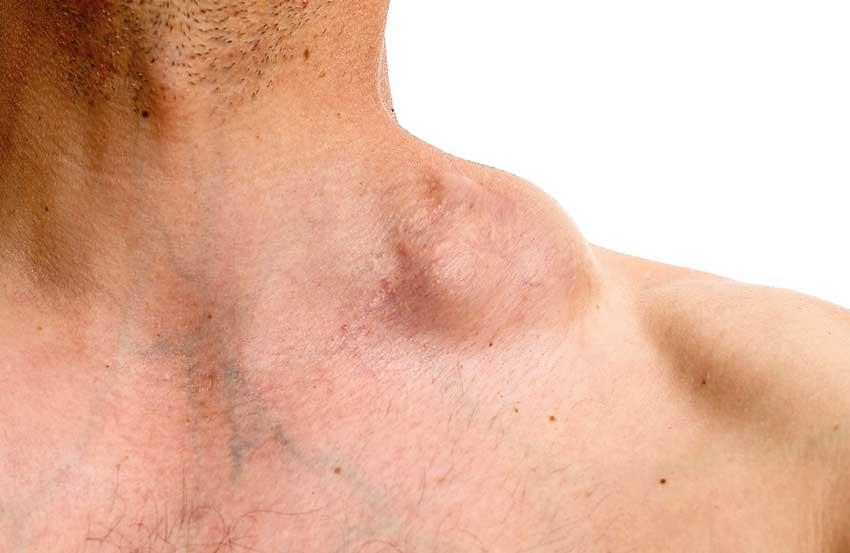24 Sep 2021 - {{hitsCtrl.values.hits}}

Research has shown that the efficacy of vaccination in blood cancer patients is significantly lower compared to the general population
Immunogenicity is the ability to mount an immune response to a foreign particle
 Recently two cases were reported in the National Foundation for Cancer Research blog where two patients with Hodgkin’s lymphoma had achieved complete remission after being infected with COVID- 19. While the news was exciting Dr Saman Hewamana, Consultant in Clinical Haematology/ Haemato-Oncology, stated that this may be a rare incident and there is a completely different side to the story of blood cancer patients. “Using COVID-19 as an anti-cancer therapy can be extremely dangerous as it is more likely that getting infected with COVID-19 will be life-threatening to patients with lymphoma and other types of blood cancers.” said Dr. Hewamana.
Recently two cases were reported in the National Foundation for Cancer Research blog where two patients with Hodgkin’s lymphoma had achieved complete remission after being infected with COVID- 19. While the news was exciting Dr Saman Hewamana, Consultant in Clinical Haematology/ Haemato-Oncology, stated that this may be a rare incident and there is a completely different side to the story of blood cancer patients. “Using COVID-19 as an anti-cancer therapy can be extremely dangerous as it is more likely that getting infected with COVID-19 will be life-threatening to patients with lymphoma and other types of blood cancers.” said Dr. Hewamana.
‘Blood cancer’, a common term used for cancers of the blood, bone marrow and lymph nodes constitute various types of diseases. One of the disease groups is Lymphoma. Lymphoma is the cancer of the lymphatic system where the lymph nodes become malignant. Lymphoma is divided into two groups; Hodgkin lymphoma (HL) and non- Hodgkin Lymphoma (NHL). Within these groups there are various types of lymphomas. “Various cancers differ at their molecular level. However, something that is true for all who have blood cancer is that their immune system is weak and vulnerable to infections,” Dr Hewamana explained. He shared that due to this reason, those with blood cancers should try to prevent getting infected with COVID-19. “This includes people who have had blood cancer previously and are in remission and those who are currently having blood cancer.” the doctor added.
Prevention First
Drawing from his experience working in the United Kingdom (UK) during peak of COVID-19 pandemic, he shared that in the UK, patients with blood cancers underwent ‘shielding’. “In shielding, they are kept in isolation where they cannot come in contact with any person, even family members that they lived together with,” Dr. Hewamana added. He did note that this was not done in Sri Lanka as the social system in place was different to that of the UK and also due to the lack of resources. But, he emphasized that persons with blood cancers should try to prevent getting infected with COVID- 19.
“Avoid going out to crowded places, don’t visit hospitals unless absolutely necessary or unless asked by the doctor, wear a mask, practice social distancing and follow all health regulations strictly,” he noted.
What happens if you get COVID-19?
If despite practicing all the preventive measures, the patient does end up getting COVID-19, Dr Hewamana urged them to seek immediate medical care. “Firstly, contact your Haematologist / Oncologist and inform them about the condition. This is important because only the Haematologist / Oncologist knows the patient’s health condition, the level of immunosuppressant medication given and the patient’s immune response.” said Dr. Hewamana. He went on to add that whether the patient should undergo home- based care or hospital- based care will be decided by the medical professionals and that it was extremely important that the patient abides by the medical advice.
COVID-19 vaccination for those with blood cancer?
While the UK prioritized vaccination for immunocompromised individuals including cancer patients so as to minimize the chances of them getting COVID-19, Dr Hewamana noted that the immunogenicity in those with blood cancer was low. “Immunogenicity is the ability to mount an immune response to a foreign particle. In the case of COVID-19 vaccines, immunogenicity is the ability of a person to mount an immune response to the viral particle introduced by the vaccines,” he explained.
“Research has shown that the efficacy of vaccination in blood cancer patients is significantly lower compared to the general population (1). This is due to people with blood cancers not being able to create a strong immune response,” he revealed.
However, it is very important to get the first available vaccine to maximise protection coupled with other measures like social distancing and masks. He reiterated patients with blood cancers should try to prevent getting infected with the virus as the disease could be life-threatening for them.
An alarming prediction
A recent report in the Lancet (2) predicted that there would be an alarming increase in the number of deaths due to cancer, in the next few years. Speaking on it, Dr Hewamana stated that the study pinpointed various factors such as delayed diagnosis due to the lockdown and restrictions, patients not coming to the hospital, doctors not working the usual hours due to restrictions and the reduced funding for cancer care and research. “During the pandemic period, our focus has solely been on combatting and controlling the COVID-19 pandemic, but we have to keep in mind that chronic diseases like cancer are still prevalent. If cancers are not properly managed or detected early, it could lead to increased mortality,” said Dr. Hewamana.
A recent research study published by Dr Hewamana and colleagues has shown blood cancer care can be continued safely during the Covid-19 pandemic if proper strategies are implemented and that this would help to prevent late stage presentation and adverse outcomes (3).
References:
(1) Malard, F., Gaugler, B., Gozlan, J. et al. Weak immunogenicity of SARS-CoV-2 vaccine in patients with hematologic malignancies. Blood Cancer J. 11, 142 (2021). https://doi.org/10.1038/s41408-021-00534-z
(2)The Lancet Oncology. COVID-19 and cancer: 1 year on. The Lancet Oncology, 22(4), 411 (2021). https://doi.org/10.1016/s1470-2045(21)00148-0
(3)Hewamana, S., Skandarajah, T., Jayasinghe, C. et al. Blood cancer care in a resource limited setting during the Covid-19 outbreak; a single center experience from Sri Lanka. PLOS ONE, 16(9), e0256941 (2021). https://doi.org/10.1371/journal.pone.0256941
20 Dec 2024 9 hours ago
20 Dec 2024 20 Dec 2024
20 Dec 2024 20 Dec 2024
20 Dec 2024 20 Dec 2024
20 Dec 2024 20 Dec 2024